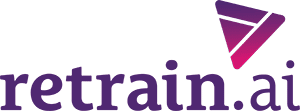This article originally appeared in Calcalist כלכליסט: דף הבית
Today, a system in Israel is revolutionizing the world of employment. Its name is SKEELZ, and as the name suggests, it makes adjustments based on skills, not just based on experience as was once accepted.
As a venture, SKEELZ developed and launched the association “Vahder – the third force.” The woman and entrepreneur behind the organization is Rivi Beller, former vice president of Aral Margalit’s JVP Foundation, and she is here to change the rules of the game in the world of adult employment.
Vahder teamed up with Israeli startup retrain.ai, a company that specializes in artificial intelligence technology in the human resources space; together, they developed SKEELZ. The platform quickly and optimally matches job seekers over the age of 50 with open positions, based on the set of skills needed to perform the job.

“SKEELZ significantly simplifies the selection and hiring processes,” Beller explains. “It finds only the most accurate people for the job based on skills. Employers find in a short time talented and experienced personnel who remain loyal to the organization, and with a higher quality than what is found on most job search sites.”
A fast and effective recruitment process that works with AI technology
Recently it seems that there is no field that AI is not involved in, and here artificial intelligence is now coming to the world of recruitment. As far as employers are concerned, this is great news. Not only is SKEELZ able to fill jobs quickly, it also does so with a high level of accuracy.
How it works
An employer or hiring manager defines vacancies in SKEELZ. The system “translates” each position in the Text-to-Skill process into a list of skills required for the position. Within seconds, the employer receives a selection of suitable candidates for the job according to their personal skills as ranked against those needed and level of suitability.
The pricing model works in favor of the employers; ads are published for free and hiring companies only pay when they want to look at the details of the suitable candidates for the job.
On the other side of the platform are the job seekers, who belong to the over 50 age group. After registration, participants answer a questionnaire regarding jobs, training and volunteering frameworks, both professional and personal. At this stage, the system performs an in-depth analysis and presents a list of personal skills, including soft skills such as human relations and management skills. The level of skills can be refined and improved along the way against a rating index. Then the miracle happens – a list of jobs is received according to the levels of matching between the skills of the job seeker and those required by the job. As of today, about 1,700 job seekers and about 450 jobs are already registered in the system.
According to Beller, “Large companies abroad are already successfully using artificial intelligence to manage their internal workforce. Here in Israel, we went a step further and chose to apply AI capabilities to make smart matches between employers and job seekers.”
Organizations benefit more when they integrate older workers
It often happens that people aged 50+ have difficulty getting accepted to jobs. Not because they lack experience or appropriate skills. Nor because of gender, ethnic identity, or sexual orientation. The reason for the rejection is ageism – discrimination based on age, which stems from prejudices and wrong stigmas towards adults.
However, the labor market is undergoing a positive change and encourages more diversity. If in the past a person was accepted for a job only based on a resume and experience, today managers look for employees based on skills and a specific fit for the position. As we get older, our skillset grows; for example, we might have learned to manage finances, deal with suppliers, gain training experience, and more. That’s why SKEELZ, which locates older workers on the basis of skills, actually increases employment options.
Beller expands, “The world is moving to a skills-based organization model – that is, to check the skills required to perform tasks and to look for the most suitable employee. From the point of view of organizations, it is more efficient and profitable, because they gain experienced people, even with extra skills, who cost less to the employer compared to a young employee. An employee aged 50+ is also more responsible, doesn’t burn hours wandering through social networks and doesn’t rush to leave a job after a month nor after a year, but remains loyal to the organization.”
The new project was made possible by, among other things, a government grant from the Population Employment Administration in the labor sector, within the framework of the “Employment Innovation Grants” mechanism. The grant is part of the strategy to achieve the government’s employment goals for the older population in Israel and related initiatives. Also, the Sagol Family Foundation and other investors support the activity and development of the project out of a belief in the importance of the subject, its innovation and contribution to Israeli society.

